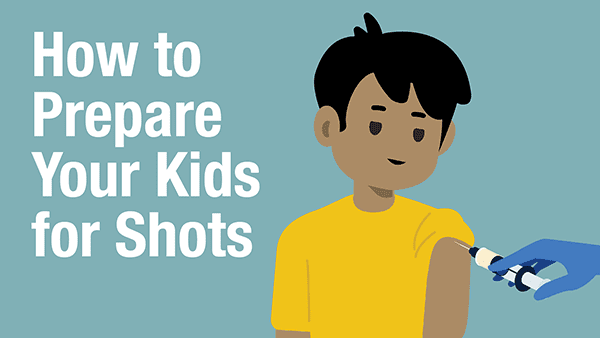
By Megan Rogers, Certified Child Life Specialist, University of Michigan Health-West
With the start of every school year comes a long “to do” list for parents as they help prepare their kids for the year ahead. One thing you can do to make it easier is prepare them for vaccinations with confidence and a sense of purpose. Below are recommendations that can help improve the experience.
No surprises: Start by being upfront and honest about the process. Research shows children cooperate more when they understand what is going on. When faced with the unknown, their imaginations tend to fill in the gaps – and they often picture the worst. By providing honest, accurate, and age-appropriate information, you’ll not only maintain your child’s trust but also help them know what to expect. For example, you might describe what they will feel by explaining, “This will feel like a pinch or a poke.”
Empower them: For any medical procedure, including vaccination, it’s important to let the child know why it is happening. This provides a sense of purpose. For example, you might say, “We get vaccines to help protect our bodies from diseases and viruses, so we don’t get sick or pass any sickness to our friends and family.” The COVID-19 vaccine can be emotionally charged for many families – but by empowering children, we are letting them help be a part of the solution.
Make a plan: All kids are different and have different levels of coping. If your child is able to talk about their preferences, you can discuss what choices are available. Having real choices helps provide a sense of control. For example, you could ask, “Which arm would you like your poke in?” or “Would you like to bring your favorite toy or blanket when you get your vaccine?” or “Would you like to count 1-2-3?”
Share the plan with your provider: Talk to the provider or nurse who is administering the vaccine and let them know your plan. They know it is important to maintain your trust – and your child’s – so do not hesitate to communicate ahead of time. If the plan is to count to 3, make sure your provider knows this. Your provider also may be able to help you and your child find a non-threatening position to receive the shot. If you want to hold your child or let them sit on your lap, it is always OK to ask.
A Child Life Specialist is specifically trained to help children and families cope with stressful experiences in the hospital or other healthcare settings. They prioritize the emotional well-being of the families they provide specialized care to. For more information about child life specialists, please click here.